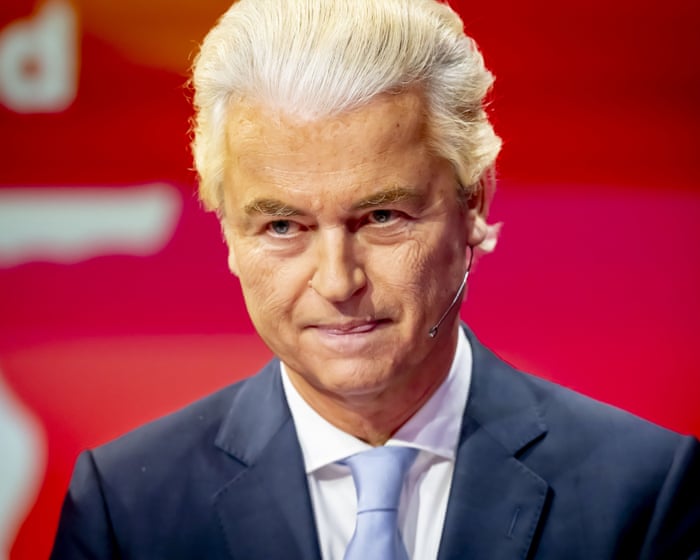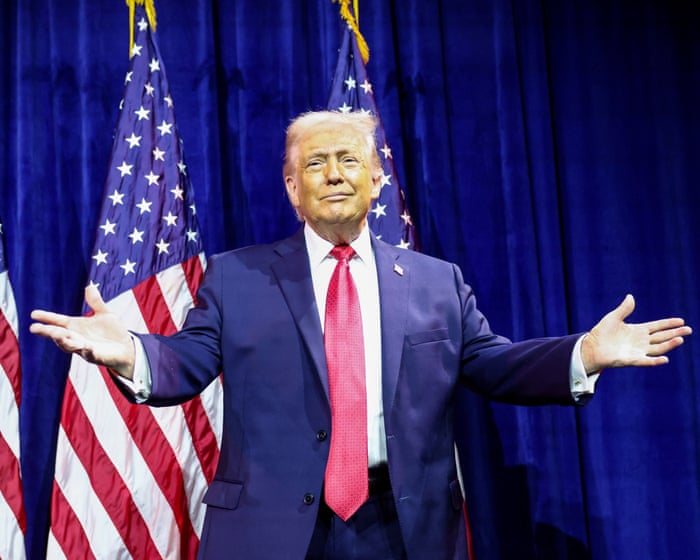On Wednesday, the Dutch head to the polls once more. This marks the ninth election for the Tweede Kamer, the main legislative body of the Dutch parliament, in this still-young century. In certain respects, the Netherlands has taken on a role similar to Italy in the 21st century, grappling with political fragmentation, unstable governments, and a rise in radicalization—often accompanied by violence.
This election is a direct outcome of that fragmentation and instability. The far-right Freedom Party (PVV), led by Geert Wilders, was a dominant force in the last ruling coalition but withdrew its support in July, bringing down the government after less than a year. The lessons drawn by Dutch media, political parties, and voters from this turbulent period could resonate across Europe, as many countries face the same dilemma: how to respond to the growing electoral and political influence of the far right.
Like others, the Dutch media were caught off guard when Wilders ended his own government’s term and have since tried to interpret his motives. Compared to 2002, when an even more chaotic coalition collapsed after just 12 weeks, there is now far less debate over whether the far right should play a role in Dutch politics—almost as if a future without it has become unimaginable.
This is hardly surprising, as much of the Dutch media remains, in effect, a willing captive of the far right. Wilders himself rarely gives interviews or appears in public, yet he remains the most talked-about politician on Dutch television. In his absence, media attention has shifted to figures like Joost Eerdmans, leader of the radical-right JA21 party, who has received disproportionate coverage. Similarly, a tactical leadership change in the extreme-right Forum for Democracy (FVD)—where Lidewij de Vos replaced Thierry Baudet—successfully returned the party to the spotlight.
Dutch political parties have also played a part in normalizing and rationalizing the far right. Some right-wing parties have refused future coalitions with Wilders and the PVV—not because of his anti-constitutional ideology, but due to what they call his “immature” and “irresponsible” behavior. Meanwhile, these same parties continued to pass far-right policies after Wilders left government, including what was billed as the “strictest asylum policy ever,” a stricter burqa ban, and even an “antifa ban”—the latter proposed by FVD, the only far-right party supposedly excluded from power by a national cordon sanitaire.
Even centrist politicians are contributing to this normalization. Rob Jetten has shifted his socially liberal D66 party to the right on culture and immigration, embracing a form of communitarian patriotism, and has not ruled out governing with the radical-right JA21 or the radicalized farmers’ party BBB. Frans Timmermans, leader of the center-left GreenLeft/Labour alliance, has toughened his party’s stance on immigration, referred to a “refugee problem,” and appeared on the far right’s favorite TV show, Vandaag Inside—ironically upsetting many of the program’s regular viewers.
Yet, as always, voters appear to prefer the original far-right option over its growing number of imitators. Although Wilders’ PVV has lost some support—down roughly 4% from the last election—it remains the most popular party in the country.
Most of the electoral volatility stems from the collapse of two newer parties, BBB and Pieter Omtzigt’s New Social Contract (NSC), which were part of the outgoing coalition but now poll at 2.5% and 0%, respectively. Their supporters seem to have shifted largely to the Christian Democrats (CDA), which is set to be the big winner. The conservative VVD, the party of former Prime Minister Mark Rutte that dominated Dutch politics for much of this century, is expected to lose about a third of its already reduced 2023 vote share, with many supporters moving to the radical-right JA21.
The left, meanwhile, has been unable to break the far-right’s momentum.The far right’s grip on the media, especially on talk shows, remains limited and stagnant, even after the recent merger of the Greens and Labour into GL/PvdA.
Interestingly, polls indicate that the main shifts are happening within the three electoral blocs: the far right, the centre-right, and the left. Each bloc’s overall support stays roughly the same—35%, 40%, and 25% respectively—but within the far-right bloc, JA21 has become the second-largest party after the PVV, while in the centre-right bloc, the CDA and possibly D66 have overtaken the VVD.
Of course, opinion polls can be unreliable, and in the Netherlands, they are increasingly so as more voters wait until election day to decide. Still, it’s clear that forming a coalition will be difficult and drawn-out, even by Dutch standards. Almost all parties have ruled out working with Wilders, but some, like the VVD, have also refused to cooperate with the centre-left. So, even if GL/PvdA becomes the largest “democratic” party, Timmermans would need the VVD to change its stance to lead a broad centre-right coalition as prime minister. Alternatively, Christian Democrat leader Henri Bontebal could head a centre-right government with less personal friction, though it would still face instability.
Regardless of the outcome, one thing is certain: despite the far right’s poor record in governing the Netherlands, it continues to exert a strong influence. Party politics remains fragmented, yet it is increasingly shaped by the normalization of far-right ideas and politicians. Liberal democratic parties spend more time fighting each other than confronting the far right. While there is some containment of the far right, it doesn’t apply to all parties like JA21, and it targets their behavior rather than their ideology. These trends are visible both in the European Parliament and across many other European countries.
Frequently Asked Questions
Of course Here is a list of FAQs about Geert Wilders and the far rights influence in the Netherlands designed to be clear and conversational
General Beginner Questions
1 Who is Geert Wilders
Geert Wilders is a Dutch politician known for his strong antiimmigration antiIslam and Eurosceptic views He is the leader of the Party for Freedom which is often described as farright or populist
2 What does fell short in forming a government mean
It means that after his party won the most seats in the election he tried to build a coalition with other parties to create a ruling majority but was unsuccessful Other parties were ultimately unwilling to join his government so he had to step aside
3 If his party won the most votes why couldnt he become Prime Minister
The Netherlands has a multiparty system so one party almost never wins an outright majority To govern parties must form a coalition While Wilders won the most seats he couldnt convince enough other parties to partner with him to reach the required majority
4 What are the main policies of Geert Wilders party
His key policies include a total halt to immigration from Muslimmajority countries a Nexit referendum to leave the European Union putting Dutch interests first and reducing the number of international students
Deeper Advanced Questions
5 If Wilders failed to form a government how is the far rights influence still strong
Even though he isnt leading the government his partys success has shifted the entire political debate Mainstream parties now feel pressured to adopt stricter positions on immigration and integration to appeal to his voters effectively implementing parts of his agenda
6 What is the cordon sanitaire and did it break
A cordon sanitaire is an agreement among mainstream parties to never form a coalition with an extremist party For years this applied to Wilders PVV While it didnt break completely other parties did engage in serious coalition talks with him which significantly weakened the traditional boycott
7 Who is governing the Netherlands now instead
After Wilders attempts failed a new coalition was formed by a different set of parties from the centerright and right including the Party for Freedom and Democracy



